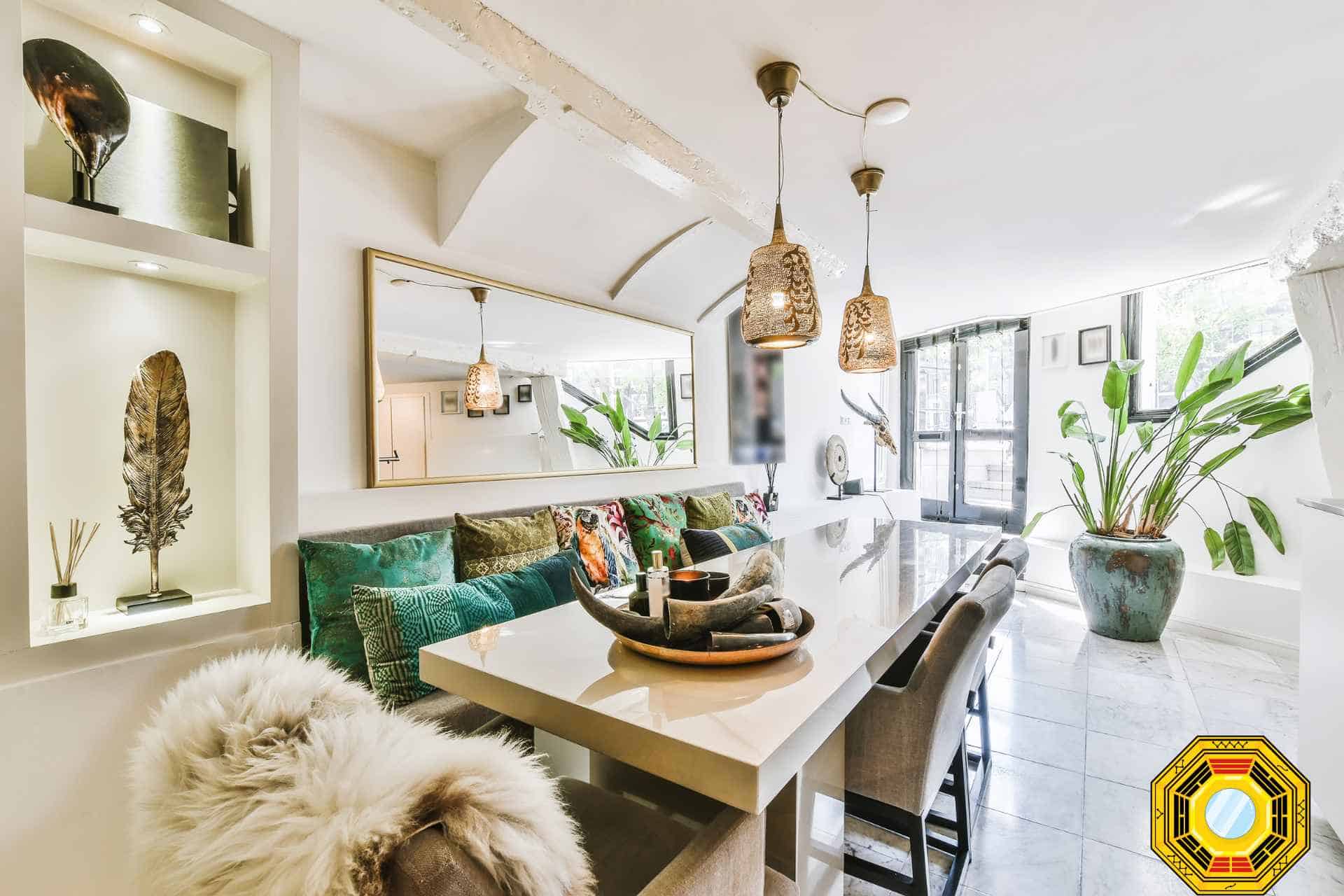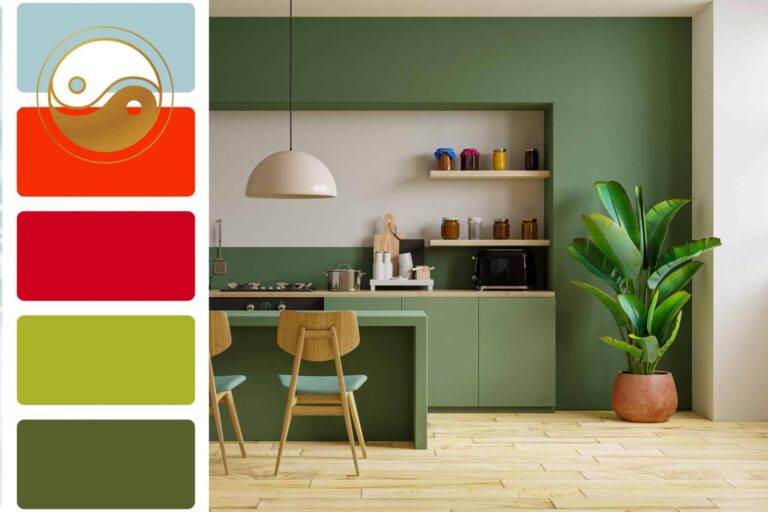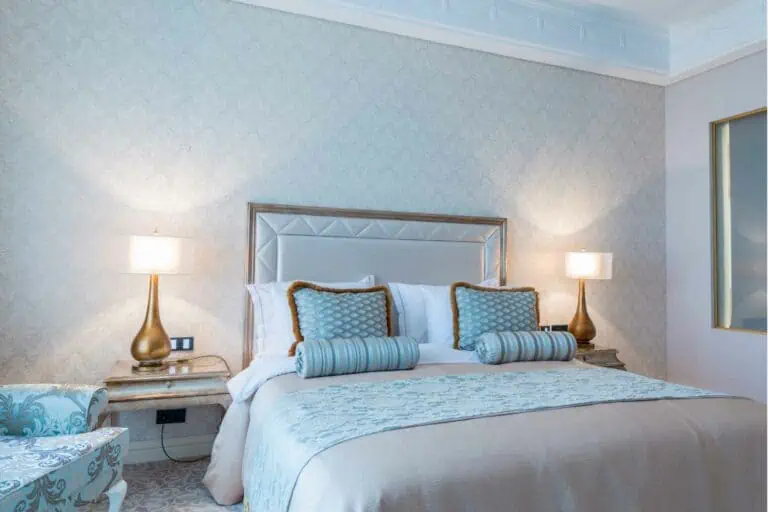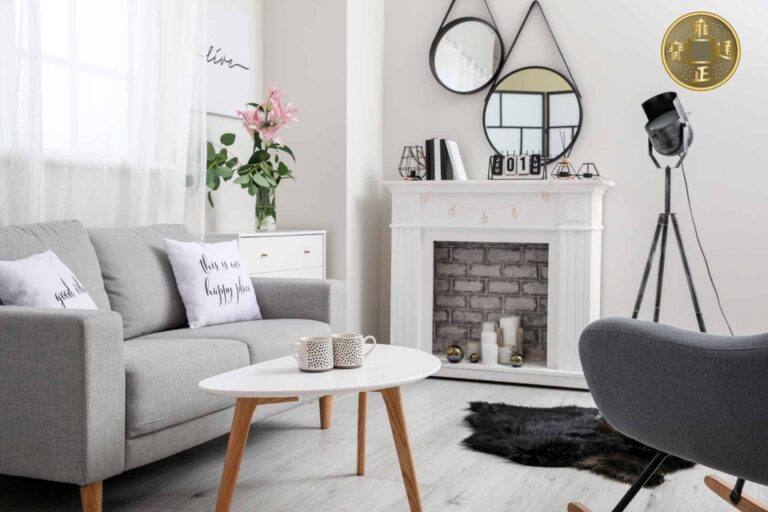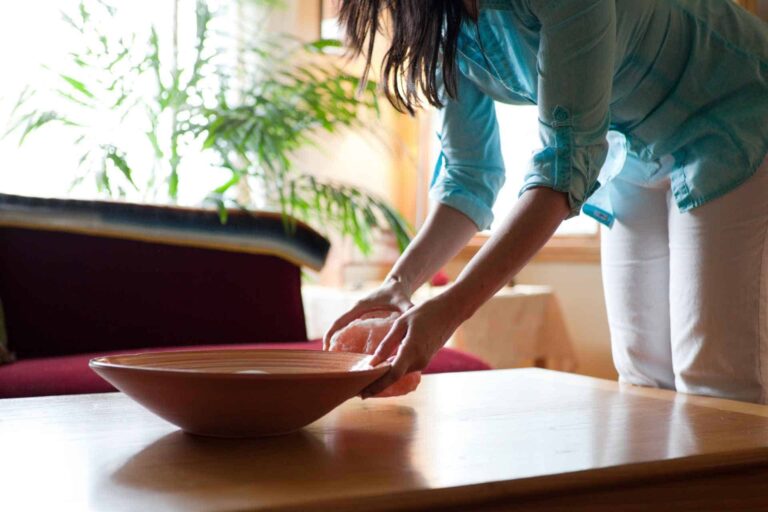Top 5 Mistakes to Avoid: Mirror in Dining Room Feng Shui
When it comes to Mirror in dining room Feng Shui represents a place of wealth and abundance, which makes the placement of mirrors in this space crucial. The power of mirrors lies in their unique ability to attract and amplify energy. If placed correctly, they can positively enhance the energy flow of your home. However, if positioned incorrectly, they can cause harm. Therefore, it is essential to avoid certain common mistakes when placing mirrors in your dining room in order to maintain a healthy and prosperous environment. From reflecting the dining table to using distorted mirrors, these mistakes can disrupt energy flow and create disharmony. Understanding these mistakes is the first step towards creating a perfectly harmonious dining space. Alright, let’s jump right in and talk about the top five mistakes to avoid when it comes to placing mirror in dining room Feng Shui.
5 Mistakes to Avoid: Mirror in Dining Room Feng Shui
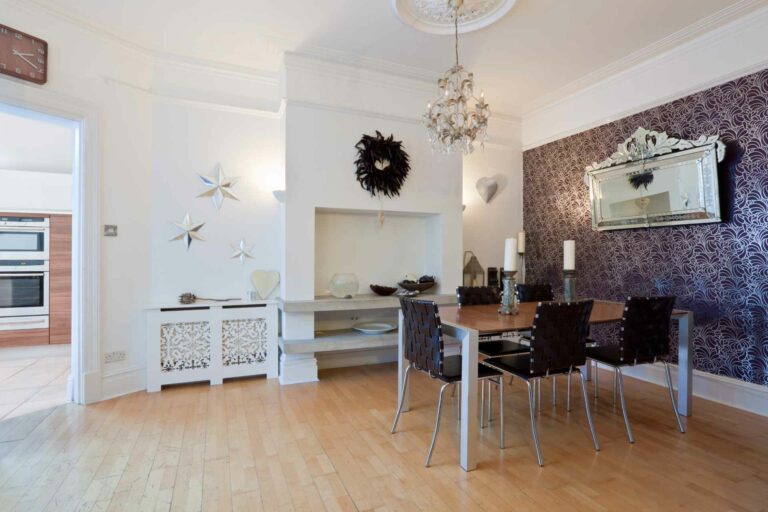
Mistake 1: Placing Mirrors That Reflect Dining Table
In the practice of Feng Shui, the dining table is considered a symbol of health and wealth. It’s where we nourish our bodies and connect with our family members. Therefore, it’s crucial to maintain positive energy around this space. However, a common mistake is placing a mirror that reflects the dining table.
According to Feng Shui principles, when a mirror reflects the dining table, it doubles the presence of food. While it might seem like a sign of abundance, it can actually lead to overeating and consequent health problems. Additionally, the doubled food energy can also create a sense of restlessness and overactivity that can disrupt peaceful meal times. Furthermore, in case the dining table is cluttered or messy, the mirror will reflect this image, thus doubling the effect of the cluttered energy. To avoid this, always place mirrors in a way that they do not reflect the dining table. Keep in mind that the purpose of the mirror should be to invite calm, positive energy into the dining room.
Mistake 2: Using Broken or Distorted Mirrors
Another common mistake in dining room Feng Shui involves the use of broken or distorted mirrors. In Feng Shui, mirrors are considered tools to reflect and amplify energy. If a mirror is broken or distorted, it will reflect and amplify negative, chaotic energy, which impacts the overall harmony and balance of the room. Imagine the mirror as an energy magnifier; whatever it reflects, it enhances. Therefore, a broken or distorted mirror can multiply feelings of disorder, confusion, or even conflict. This can lead to disrupted communication and strained relationships among dining room occupants, defeating the purpose of gathering for meals.
Additionally, distorted mirrors can give a warped view of reality, reflecting a misplaced sense of self and reality, and potentially leading to misunderstandings and misperceptions. It is crucial to use clear and undistorted mirrors to ensure they reflect and amplify positive energy, enhancing the dining experience. If a mirror becomes broken or distorted, it should be replaced immediately to avoid further disruption of positive energy flow. Prioritize quality and clarity when choosing mirrors for your dining room to maintain balance and harmony.
Mistake 3: Positioning Mirrors to Reflect Clutter
The third common mistake in dining room Feng Shui is placing mirrors such that they reflect clutter or disorganization. In Feng Shui, mirrors serve as tools to double the energy of whatever they reflect. Consequently, a mirror reflecting clutter will amplify the feeling of disarray and chaos. This negative energy can disrupt the peaceful environment of the dining room, making it less inviting and comfortable for its occupants.
Furthermore, it might lead to feelings of stress and overwhelm, counteracting the dining room’s purpose as a space for relaxation and enjoyable meals. It’s therefore essential to consciously place mirrors in a location where they reflect a clean, organized, and aesthetically pleasing scene, such as a beautiful piece of artwork or the outdoors. This will ensure that the mirror doubles the positive energy, contributing to a sense of tranquility and harmony in the dining space. In the case where a mirror inadvertently reflects clutter, consider repositioning the mirror or the clutter, or using a cover to obstruct the mirror’s view of the cluttered area. Remember, maintaining a clutter-free and organized dining area is as crucial as the mirror’s strategic placement for optimal Feng Shui.
Mistake 4: Hanging Mirrors Too High or Too Low
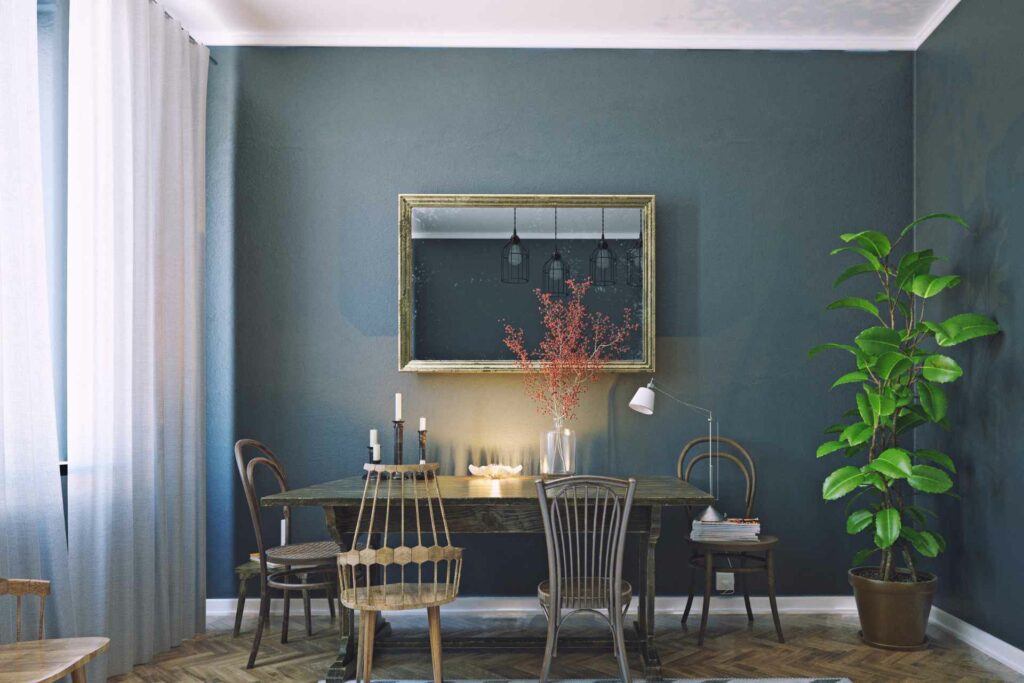
Correct positioning of mirrors is another aspect often overlooked in dining room Feng Shui. If mirrors are hung either too high or too low, they can distort reflections and interfere with the balanced energy flow. For instance, a mirror hung too high may cut off the heads of the reflected people, leading to feelings of unease and discomfort. Alternatively, a mirror positioned too low might not reflect the dining table and its occupants, negating its purpose in Feng Shui to double the abundance and joy shared during meals.
Therefore, it’s essential to hang your mirror at an optimal height, ideally such that it reflects the entire dining table and the diners seated around it. This not only creates a sense of inclusivity and connection among the people sharing the meal but also multiplies the positive energy in the room. If you notice any awkward reflections, take time to adjust the mirror’s position until it creates a pleasing and harmonious reflection. Remember, every detail matters when it comes to creating a dining room with good Feng Shui.
Mistake 5: Using Mirrors to Reflect Doorways
A common Feng Shui mistake is using mirrors to reflect doorways in the dining room. In Feng Shui philosophy, mirrors are considered a powerful tool that can double whatever they reflect. Therefore, if a mirror is placed in a way that it reflects a doorway, it’s believed to symbolize the doubling of opportunities for energy, both positive and negative, to enter or leave the room. This could disrupt the stability and harmony of the energy within the dining space.
Moreover, reflecting the doorway could also signify opportunities and wealth leaving your home, which is diametrically opposed to the fundamental purpose of using mirrors in Feng Shui – to amplify positivity and abundance. To avoid this, make sure the mirror reflects stable, positive images or areas within the room such as a beautiful piece of art or the dining table laden with food. The mirror placement should always enhance the room’s energy and not drain it. Understanding and adhering to these nuances of mirror placement are key to harnessing their potential in creating a dining room with ideal Feng Shui.
Conclusion
Mirror placement in dining room Feng Shui is an art that needs meticulous attention to ensure it amplifies positive energy rather than countering it. The five common mistakes discussed emphasize the need to avoid reflecting negative images, empty spaces, clutter, doorways, and the absence of reflection of the dining table in the mirrors. Each of these errors could inadvertently create a negative energy flow, counteracting the principles of Feng Shui. The aim should always be to use mirrors strategically to enhance abundance, positivity, and harmony within the dining space. Understanding these nuances can make a significant difference in the energy dynamics of your dining room. Therefore, while mirrors can indeed be powerful Feng Shui tools, their potential can only be fully harnessed through thoughtful and accurate placement. Neglecting these aspects may lead to an unintended multiplication of negative energies, disrupting the equilibrium and prosperity of your home.

